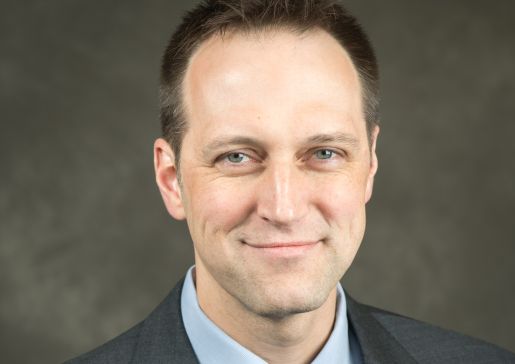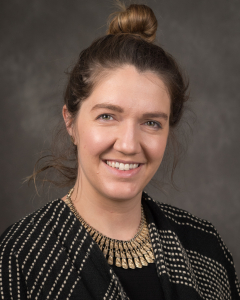Improving Care for People With HIV, Viral Hepatitis, and Substance Use Disorders
Dr. Ryan Westergaard, faculty member of the Division of Infectious Disease within the Department of Medicine and Chief Medical Officer for Communicable Diseases at the Wisconsin Department of Health Services, integrates academia and public health to benefit Wisconsin residents. He is the principal investigator for research conducted with colleagues in the SyndemicsResearch Group (SynRG).

SyndemicsResearch Group (SynRG)
The research at SynRG focuses on improving the quality and continuity of care for HIV, viral hepatitis, and substance use disorders among underserved populations by investigating the impact of social and economic barriers on infectious disease. They evaluate novel mobile health applications and care models for individuals with substance use disorders, HIV, or HCV, collaborating across disciplines to address complex social determinants of health and contributing expertise to NIH panels on HIV/AIDS and underserved populations.
Research Team
Program Manager
Recruitment and Retention Specialist
Project Manager, ENHANCE and CJC-TraC Projects
Administrative Specialist
CJC-TraC Nurse Case Manager
Project Manager, ART-C Project
Research Program Scientist
- Program Collaborators
- Vivent Health
- Wisconsin Department of Health Services
- Wisconsin Department of Corrections

There are many opportunities for motivated individuals in the Westergaard program! We are currently seeking graduate students and post-docs interested in patient-oriented projects and developing manuscripts.
If you are interested in joining the group, please send your CV and a brief description of your research experience and interests to our program manager.
Active Projects
- ART-CHESS
This project will test the effectiveness of a combination of strategies, including an evidence-based mobile health app and peer mentoring, that can be integrated into an HIV clinical practice to improve viral suppression and retention in care for vulnerable patients. The goal of this project is to implement and evaluate an evidence-based mobile health (mHealth) system to improve HIV viral suppression within a multi-site, comprehensive HIV care program. Improving HIV treatment outcomes for vulnerable patients is an urgent priority for ending the epidemic and achieving health equity.
- CJC-TraC
This project is a collaboration between the Wisconsin Department of Corrections and the UW School of Medicine and Public Health. It provides RN case management services for people who are incarcerated starting pre-release with a primary focus of getting to health care services post-release. The aim for this program is to adapt and evaluate the feasibility and acceptability of a low cost, evidence based transitional care program, called C-TraC, for increasing use of outpatient medical care for incarcerated people with HIV, HCV and/or opioid use disorder.
- ENHANCE
The purpose of the ENHANCE Project is to learn about harm reduction services, how to make them better and easier to use, and to reduce harms in the community, like overdose. The project is a continuation of previous work through the Rural Opioid Initiative (Thrive4Life), the iThrive WI Study, and other efforts to understand the challenges that people who use drugs face across Wisconsin. With this new study, we also hope to reach people who do not currently use harm reduction services, to learn about how we could make services more accessible for everyone.
Funding Support
Dr. Westergaard's research is supported by the National Institutes of Health and the Centers for Disease Control and Prevention.








